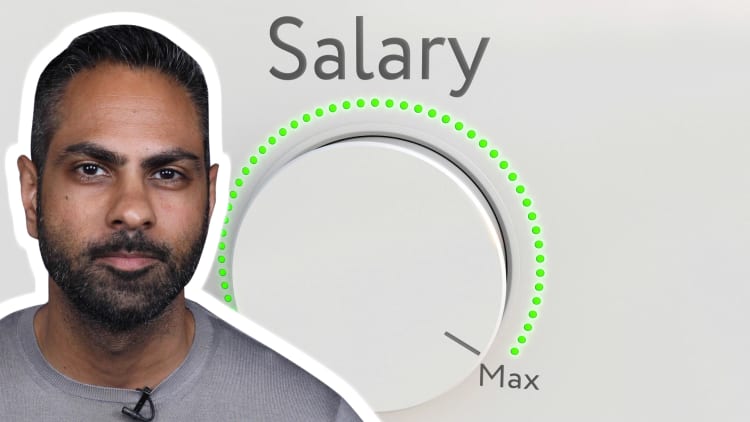After you've been offered a new job, you get to the part almost everyone dreads: salary negotiations.
A lot of money is at stake, and there are a lot of misconceptions out there about the right approach to take, says Ramit Sethi, the best-selling author of "I Will Teach You to be Rich."
But these conversations are too important to mess up. If you walk in prepared, you're far more likely to navigate your way to a higher salary. And typically, the risk is worth the reward. Of those who face their fears and ask for more money, Payscale finds that about 70 percent get some type of increase after asking for a raise.
Here's how to avoid four common salary negotiation mistakes.
1. You don't negotiate
The first mistake, and the biggest one, Sethi says, is not negotiating at all. That means you accept their first offer, if you're job hunting, or you never ask your boss for more if you're already employed. Almost two thirds of people never have asked for a raise, according to survey by PayScale of over 160,000 Americans.
"I want you to start negotiating instead of just waiting for someone to recognize your genius and hand you money. That's not how it works," Sethi says.
It's a common mistake that can cost you hundreds of thousands of dollars over your lifetime, Sethi says. Job site ZipRecruiter recently calculated that refusing to negotiate could cost you $750,000 or more over your lifetime.
That's partly because people who negotiate once tend to negotiate a lot — and the more you negotiate, the higher your chances of making more money. Plus, when you negotiate, Sethi finds it actually improves the way that your boss sees you. Only a top performer who knows they're worth it will negotiate, he says.
2. You don't plan ahead
"You think you're going to walk in and suddenly become a master negotiator?" Sethi says. Nope. And you're likely going up against a pro. Your boss has negotiated with dozens, maybe even hundreds of employees.
So you'd better plan in advance for these types of conversations. Pull salary data on what you should be earning, based on your skill set, from sites like Glassdoor, PayScale and LinkedIn.
Then you look at what your current skill set is, Sethi says, and think about what you bring to the company. Take the time to practice talking about this out loud so you're comfortable with the material and your pitch when it's time to get down to business.
"If you can communicate this effectively, with practice, then you can walk in and have a good shot at negotiating your salary," Sethi says.
3. You take advice from the wrong people
Everyone may have an opinion on the best way to negotiate, but not everyone is going to steer you in the right direction. Sethi says you should avoid letting non-experts, or those on social media, influence you, especially if they're telling you you should accept whatever you're offered and be thankful you have a job at all.
"If you have your drunk uncle who sits on his recliner everyday telling you, 'Why would you negotiate?' He might not be the guy to listen to," Sethi says.
Instead, Sethi recommends asking your successful friends for advice. Ask them if they've negotiated their salary before and, if so, how they approached the conversation.
"When you start to hear other people telling you their negotiation stories, I think you're going to be confident in negotiating for what you deserve and what you are worth," Sethi says.
When you start to hear other people telling you their negotiation stories, I think you're going to be confident in negotiating for what you deserve and what you are worth.Ramit Sethiauthor of 'I Will Teach You To Be Rich'
4. You give up after the first attempt
Even when you go in prepared, your manager or potential employer may say "no" when you ask for a higher salary. That's OK, Sethi says. But it's a mistake to leave it there and not follow up.
"There are so many better ways to respond," Sethi says. Instead of just saying you'll accept the lower salary, ask, "Could you please walk me through the numbers?" Or ask the hiring manager: "How did you reach that salary?"
If the employer's response is something along the lines of, "This is the standard rate we pay everyone," Sethi recommends challenging that in a polite way. You might say something like, "I understand that this is a standard rate for a typical candidate, but I'm not a typical candidate based on my experience and based on the skill sets that I'm bringing to the job."
And if the manager won't budge, Sethi says, don't give up hope. If you like the job, take it. You can always bring up the question of a raise during an annual review after you've had a chance to prove your value to the company.
"There are so many ways to respond, but you'll never come up with them on the spot — you need to practice," Sethi says.
Don't miss: This simple, 4-step plan can help you get a raise in 2019
Like this story? Subscribe to CNBC Make It on YouTube!




